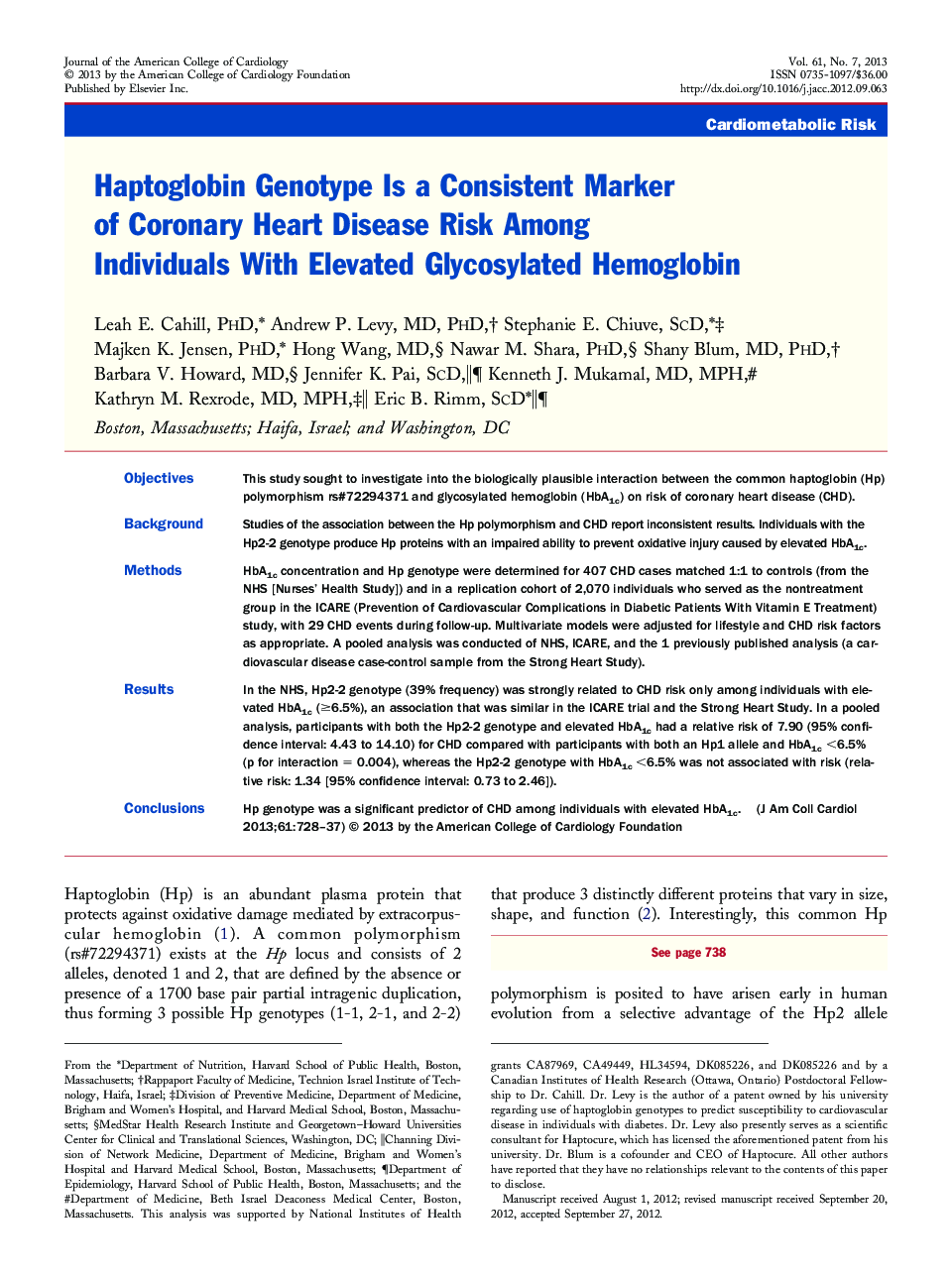| Article ID | Journal | Published Year | Pages | File Type |
|---|---|---|---|---|
| 2946301 | Journal of the American College of Cardiology | 2013 | 10 Pages |
ObjectivesThis study sought to investigate into the biologically plausible interaction between the common haptoglobin (Hp) polymorphism rs#72294371 and glycosylated hemoglobin (HbA1c) on risk of coronary heart disease (CHD).BackgroundStudies of the association between the Hp polymorphism and CHD report inconsistent results. Individuals with the Hp2-2 genotype produce Hp proteins with an impaired ability to prevent oxidative injury caused by elevated HbA1c.MethodsHbA1c concentration and Hp genotype were determined for 407 CHD cases matched 1:1 to controls (from the NHS [Nurses' Health Study]) and in a replication cohort of 2,070 individuals who served as the nontreatment group in the ICARE (Prevention of Cardiovascular Complications in Diabetic Patients With Vitamin E Treatment) study, with 29 CHD events during follow-up. Multivariate models were adjusted for lifestyle and CHD risk factors as appropriate. A pooled analysis was conducted of NHS, ICARE, and the 1 previously published analysis (a cardiovascular disease case-control sample from the Strong Heart Study).ResultsIn the NHS, Hp2-2 genotype (39% frequency) was strongly related to CHD risk only among individuals with elevated HbA1c (≥6.5%), an association that was similar in the ICARE trial and the Strong Heart Study. In a pooled analysis, participants with both the Hp2-2 genotype and elevated HbA1c had a relative risk of 7.90 (95% confidence interval: 4.43 to 14.10) for CHD compared with participants with both an Hp1 allele and HbA1c <6.5% (p for interaction = 0.004), whereas the Hp2-2 genotype with HbA1c <6.5% was not associated with risk (relative risk: 1.34 [95% confidence interval: 0.73 to 2.46]).ConclusionsHp genotype was a significant predictor of CHD among individuals with elevated HbA1c.
